
BBC Sherlock Fan Forum - Serving Sherlockians since February 2012.
- besleybean
- Threatened Knighthood
 Offline
Offline 
- From: Carnoustie, Angus, Scotland.
- Registered: October 4, 2012
- Posts: 21,376
Re: So what do you think about our Consulting Detective?
I concur...see my other posts!
This was Sherlock and John alone in a high tension situation and their time to sort it out..
---------------------------------------------------------------------------------------------------------------------------------------------------------------
- RavenMorganLeigh
- Official Blogger
 Offline
Offline 
- From: Seattle, WA, USA
- Registered: December 25, 2013
- Posts: 1,575
Re: So what do you think about our Consulting Detective?
silverblaze wrote:
I watched it a few times now, and I'm definately going with the 'he found idea of the switch in his mind palace, and then the actual switch on the bomb'. No idea if bombs really work that way but I'm just gonna pretend they do. It's his conversation: he's completely focused on the solution and as soon as he hit the switch he changes the conversation to asking forgiveness.
I actually don't find it so horrible anymore, he just saw an opportunity to end the tension between them. Maybe John would never forgive him and their relationship would be damaged forever. Now he basically forced John into forgiving him and clearing up the air. And point out that John, despite himself, was risking his life to be with him (who knows, maybe he was genuily touched by that).
I totally concurr.
- SilverMoonDragonB
- High Functioning Sociopath
 Offline
Offline 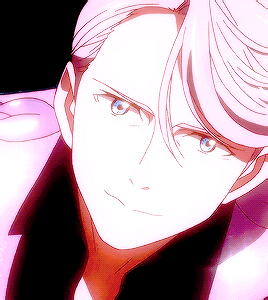
- From: Ontario, Canada
- Registered: May 21, 2013
- Posts: 3,228
Re: So what do you think about our Consulting Detective?
RavenMorganLeigh wrote:
silverblaze wrote:
I watched it a few times now, and I'm definately going with the 'he found idea of the switch in his mind palace, and then the actual switch on the bomb'. No idea if bombs really work that way but I'm just gonna pretend they do. It's his conversation: he's completely focused on the solution and as soon as he hit the switch he changes the conversation to asking forgiveness.
I actually don't find it so horrible anymore, he just saw an opportunity to end the tension between them. Maybe John would never forgive him and their relationship would be damaged forever. Now he basically forced John into forgiving him and clearing up the air. And point out that John, despite himself, was risking his life to be with him (who knows, maybe he was genuily touched by that).I totally concurr.
Me too ^
-------------------------------------------------------
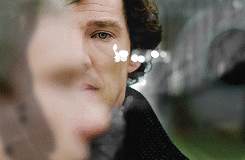
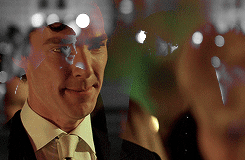
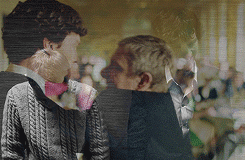
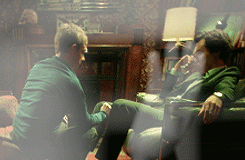
- Wholocked
- Moderator
 Offline
Offline 
- From: Australia
- Registered: March 7, 2012
- Posts: 1,811
Re: So what do you think about our Consulting Detective?
So all these theories that he was insecure about John's response...how does that fit with Sherlock's attitude in the conversation with Mycroft at the beginning of the episode? I think he was 100% certain that he'd waltz back into John's life and be welcomed with open arms (and there are a lot of people coming up with Johnlock-y theories as to why he expects that). Mycroft even says something like "Have you considered there's a possibility you won't be welcome" and Sherlock scoffs and says "No there's not". But then at the restaurant John's reaction is completely unexpected and puts Sherlock on the backfoot.
He finds an unlikely ally in Mary, who also feels John is over-reacting. I think if Mary hadn't been there Sherlock really wouldn't have had a clue how to proceed. He seemed to take his cues from her, a bit, especially in the deli scene.
That's my take on that particular question anyway ![]()
Last edited by Wholocked (January 4, 2014 2:27 am)
-------------------------------------------------------------------------------------------------------------
I dislike being outnumbered. It makes for too much stupid in the room
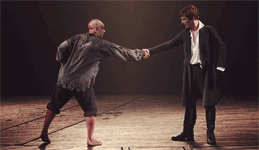
- besleybean
- Threatened Knighthood
 Offline
Offline 
- From: Carnoustie, Angus, Scotland.
- Registered: October 4, 2012
- Posts: 21,376
Re: So what do you think about our Consulting Detective?
Oh I have no doubt that when Sherlock 1st waltzes up to John, he thought it would all go swimmingly....but then he was rather abruptly brought down to Earth!
---------------------------------------------------------------------------------------------------------------------------------------------------------------
- Mattlocked
- One More Miracle
 Offline
Offline 
- From: Germany
- Registered: June 29, 2012
- Posts: 6,781
Re: So what do you think about our Consulting Detective?
besleybean wrote:
Oh I have no doubt that when Sherlock 1st waltzes up to John, he thought it would all go swimmingly....but then he was rather abruptly brought down to Earth!
Jepp.
And what I love about it is that he get's punched several times but never leaves. ![]()
__________________________________
"After all this time?" "Always."
Good bye, Lord Rickman of the Alan
- besleybean
- Threatened Knighthood
 Offline
Offline 
- From: Carnoustie, Angus, Scotland.
- Registered: October 4, 2012
- Posts: 21,376
Re: So what do you think about our Consulting Detective?
This whole sequence was such a relief for me,.
I had been dreading it.
I guess this is when spoilers do hurt, because of course I knew Sherlock was gonna get punched.
But actually the way it's handled is brilliant.
I genuinely laugh out loud every time I see it.
The regression from restaurant to kebab shop and John and Mary's body language, the exchanges, are all just fab!
Oh and I love the music!
---------------------------------------------------------------------------------------------------------------------------------------------------------------
- SolarSystem
- Threatened Knighthood
 Offline
Offline - From: Germany
- Registered: July 30, 2013
- Posts: 10,650
Re: So what do you think about our Consulting Detective?
Mattlocked wrote:
besleybean wrote:
Oh I have no doubt that when Sherlock 1st waltzes up to John, he thought it would all go swimmingly....but then he was rather abruptly brought down to Earth!
Jepp.
And what I love about it is that he get's punched several times but never leaves.
Oh, I definitely agree. He just doesn't give up, he tries and tries again... and that tells us something, right? ![]()
And I also agree that Sherlock just didn't expect that anything could go wrong when he comes back to John. He obviously didn't expect John to react in the way that he reacted. And when Mary asks him about human nature and he admits that he doesn't know anything about it (and even if his answer may come across with a tiny bit of irony or whatever you wanna call it), that's it right there. It's just like in old times: he doesn't do emotions.
___________________________________________________
"Am I the current King of England?
"I see no shame in having an unhealthy obsession with something." - David Tennant
"We did observe." - David Tennant in "Richard II"
- •
- besleybean
- Threatened Knighthood
 Offline
Offline 
- From: Carnoustie, Angus, Scotland.
- Registered: October 4, 2012
- Posts: 21,376
Re: So what do you think about our Consulting Detective?
Oh but except he does...his love for John is shown in his panic at the bonfire...just like I believe it was at The Pool.
Moriarty read that right.
---------------------------------------------------------------------------------------------------------------------------------------------------------------
- Punch me in the face
- Mycroft's Contact
 Offline
Offline 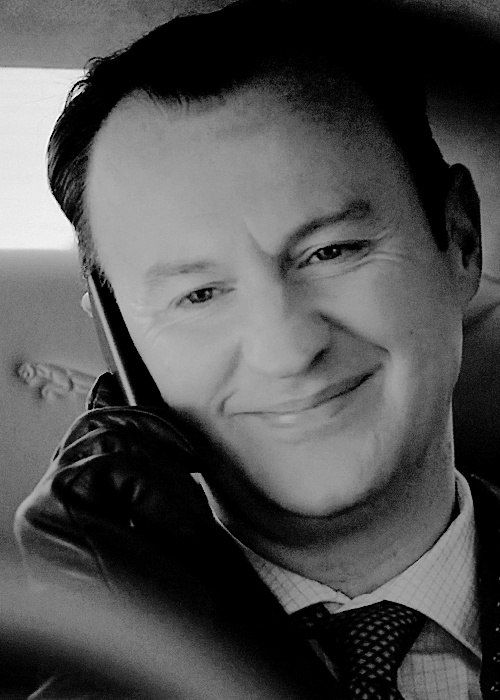
- From: Lille, France
- Registered: May 16, 2013
- Posts: 587
Re: So what do you think about our Consulting Detective?
Well, at the first viewing of the episode, during the restaurant scene (and then kebab & cie), I only felt compassion for John, once again because my husband killed himself so I can relate and all I could think of when I was watching Sherlock was "what an asshole" and I felt so sad for John (I'd rather not imagine what I would feel like if my husband suddenly reappeared and that I'd learn that a lot of people knew he was alive while I didn't! I would be be furious that he let me grieve for nothing and I would feel so betrayed that others knew and not me: that would make me believe that I truly had no importance in his eyes)
But the more I watch this scene, and the more I also feel compassion for Sherlock and find his clumsiness quite endearing, actually. (I love when he has already been punched by John and yet when that latter says something like "Mycroft, Molly and a hundred tramps" and sherlock laughs and says "No, 25 at most"! ![]() )
)
I love how he is such an intelligent guy and yet he has no clue as to why John doesn't react the way he had expected.
And one of my favourite quotes from this episode is when Mycroft says "he's got on with his life" and Sherlock replies "What life? I've been away". This sounds SO sherlock! He can be so naive sometimes that it's really cute (and of course, my Johnlock mind was screaming "he thinks John loves him and that he is nothing without him" ![]()
![]() and I like to imagine this is how Sherlock felt during those 2 years away from John... but yeah, this is just my imagination... hehe)
and I like to imagine this is how Sherlock felt during those 2 years away from John... but yeah, this is just my imagination... hehe)
And that look he has when Mary and John leave in the cab. You just wanna hug him.
************************
Just like old times...

- silverblaze
- Official Blogger
 Offline
Offline - From: Netherlands
- Registered: December 4, 2013
- Posts: 1,353
Re: So what do you think about our Consulting Detective?
I'm really not buying that he doesn't understand human nature because when chasing a baddie he suddenly becomes a genius at human nature. And he does have emotions too. I think he's just closed them off for one reason or another and thus prevented himself from learning emotionally. For me, that's why this character is so fascinating. Interesting to see the dynamic with Mycroft in that light too, Mycroft is even worse in some ways.
- SolarSystem
- Threatened Knighthood
 Offline
Offline - From: Germany
- Registered: July 30, 2013
- Posts: 10,650
Re: So what do you think about our Consulting Detective?
besleybean wrote:
Oh but except he does...his love for John is shown in his panic at the bonfire...just like I believe it was at The Pool. Moriarty read that right.
Okay, then let me rephrase what I wrote: He has emotions (and I suppose he always had them), but he (still) doesn't really know what to do with them, how to deal with them. He tries to show his emotions and makes an effort to be 'nice' to people in various scenes... and he now even talks about friends to Mycroft and that Mycroft doesn't do friends but Sherlock now sort of does. But the way I see it, he still doesn't have a clue about emotions.
___________________________________________________
"Am I the current King of England?
"I see no shame in having an unhealthy obsession with something." - David Tennant
"We did observe." - David Tennant in "Richard II"
- •
- SusiGo
- The game is never over (moderator)
 Offline
Offline 
- From: Germany
- Registered: June 5, 2012
- Posts: 22,965
Re: So what do you think about our Consulting Detective?
And there is a difference between deducing people during a case or for fun or showing off or evaluating emotion when he himself is concerned. He knows that he hurt John more than anyone else and therefore it is more difficult for him to confront him than Lestrade or Mrs Hudson. I think we all know that he does indeed have feelings which becomes quite clear in his conversation with Mycroft.
As I wrote somewhere else Sherlock uses trial and error to get through to John. First he tries comedy which does not work at all. Then there is his heartfelt "sorry" after his parents have left. But he still needs to hear John say he forgives him and so he comes up with the "We are going to die soon so let's tell each other the truth" in the train. It is completely weird but this is Sherlock after all. And his laughter at the end also has something slightly hysterical, tinged with relief after enormous tension.
For me the scene on the stairs in 221B is the true reunion. His "I heard you" and the fleeting moment searching for words is what I waited for. And then they are ready to face the world outside.
------------------------------
"To fake the death of one sibling may be regarded as a misfortune; to fake the death of both looks like carelessness." Oscar Wilde about Mycroft Holmes
"It is what it is says love." (Erich Fried)
“Enjoy the journey of life and not just the endgame. I’m also a great believer in treating others as you would like to be treated.” (Benedict Cumberbatch)

- besleybean
- Threatened Knighthood
 Offline
Offline 
- From: Carnoustie, Angus, Scotland.
- Registered: October 4, 2012
- Posts: 21,376
Re: So what do you think about our Consulting Detective?
In a nutshell. Susi.
---------------------------------------------------------------------------------------------------------------------------------------------------------------
- Kerkerian
- Mycroft's Contact
 Offline
Offline 
- From: Germany
- Registered: March 10, 2013
- Posts: 579
Re: So what do you think about our Consulting Detective?
SusiGo wrote:
And there is a difference between deducing people during a case or for fun or showing off or evaluating emotion when he himself is concerned. He knows that he hurt John more than anyone else and therefore it is more difficult for him to confront him than Lestrade or Mrs Hudson. I think we all know that he does indeed have feelings which becomes quite clear in his conversation with Mycroft.
As I wrote somewhere else Sherlock uses trial and error to get through to John. First he tries comedy which does not work at all. Then there is his heartfelt "sorry" after his parents have left. But he still needs to hear John say he forgives him and so he comes up with the "We are going to die soon so let's tell each other the truth" in the train. It is completely weird but this is Sherlock after all. And his laughter at the end also has something slightly hysterical, tinged with relief after enormous tension.
For me the scene on the stairs in 221B is the true reunion. His "I heard you" and the fleeting moment searching for words is what I waited for. And then they are ready to face the world outside.
Perfectly put, Susi. For me, the "I asked you to stop being dead" and "I heard you" was their equivalent of a hug.
______________________________________________________________________________________________________
"Why, why? I mean, why, why?"
"Four excellent questions."
- besleybean
- Threatened Knighthood
 Offline
Offline 
- From: Carnoustie, Angus, Scotland.
- Registered: October 4, 2012
- Posts: 21,376
Re: So what do you think about our Consulting Detective?
Just this.
---------------------------------------------------------------------------------------------------------------------------------------------------------------
- SilverMoonDragonB
- High Functioning Sociopath
 Offline
Offline 
- From: Ontario, Canada
- Registered: May 21, 2013
- Posts: 3,228
Re: So what do you think about our Consulting Detective?
SusiGo wrote:
And there is a difference between deducing people during a case or for fun or showing off or evaluating emotion when he himself is concerned. He knows that he hurt John more than anyone else and therefore it is more difficult for him to confront him than Lestrade or Mrs Hudson. I think we all know that he does indeed have feelings which becomes quite clear in his conversation with Mycroft.
As I wrote somewhere else Sherlock uses trial and error to get through to John. First he tries comedy which does not work at all. Then there is his heartfelt "sorry" after his parents have left. But he still needs to hear John say he forgives him and so he comes up with the "We are going to die soon so let's tell each other the truth" in the train. It is completely weird but this is Sherlock after all. And his laughter at the end also has something slightly hysterical, tinged with relief after enormous tension.
For me the scene on the stairs in 221B is the true reunion. His "I heard you" and the fleeting moment searching for words is what I waited for. And then they are ready to face the world outside.
*nods* ![]()
-------------------------------------------------------




- Mary Me
- High Functioning Sociopath
 Offline
Offline 
- From: Germany, Bonn
- Registered: January 8, 2013
- Posts: 3,250
Re: So what do you think about our Consulting Detective?
Yeah, Susi. I agree. This is how the episode works and now that you mentioned it I do also see it.
~~~~~~~~~~~~~~~~~~~~~~~~~~~~~~~~~~~~~~~~~~
"Falling is just like flying, except there’s a more permanent destination."
"Sherlock Holmes is a great man, and I think one day—if we’re very very lucky—he might even be a good one."
"Would you like to-"
"-have dinner?"
"-solve crimes?"
"Oh"
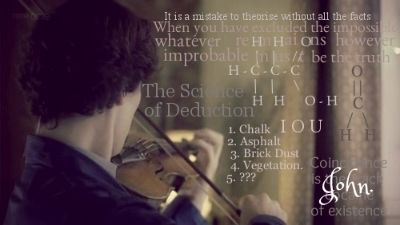
- kittykat
- Reichenbach Survivor
 Offline
Offline 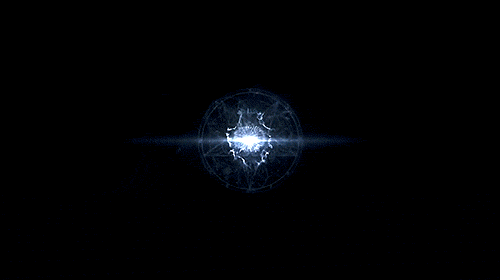
- From: England
- Registered: June 17, 2013
- Posts: 4,740
Re: So what do you think about our Consulting Detective?
SusiGo wrote:
And there is a difference between deducing people during a case or for fun or showing off or evaluating emotion when he himself is concerned. He knows that he hurt John more than anyone else and therefore it is more difficult for him to confront him than Lestrade or Mrs Hudson. I think we all know that he does indeed have feelings which becomes quite clear in his conversation with Mycroft.
As I wrote somewhere else Sherlock uses trial and error to get through to John. First he tries comedy which does not work at all. Then there is his heartfelt "sorry" after his parents have left. But he still needs to hear John say he forgives him and so he comes up with the "We are going to die soon so let's tell each other the truth" in the train. It is completely weird but this is Sherlock after all. And his laughter at the end also has something slightly hysterical, tinged with relief after enormous tension.
For me the scene on the stairs in 221B is the true reunion. His "I heard you" and the fleeting moment searching for words is what I waited for. And then they are ready to face the world outside.
Yep ![]()
-----------------------------------------------------------------------------
Dean - "I'm not happy about it. But I got to move on. So I'm gonna keep doing what we do...while I still can. And I'd like you to be there with me."
Sam - "I'm your brother, Dean, if you ever need to talk about anything with anybody, you got someone right here next to you."

- silverblaze
- Official Blogger
 Offline
Offline - From: Netherlands
- Registered: December 4, 2013
- Posts: 1,353
Re: So what do you think about our Consulting Detective?
Agreed. And it will keep us entertained for a while. Is my predicion.

